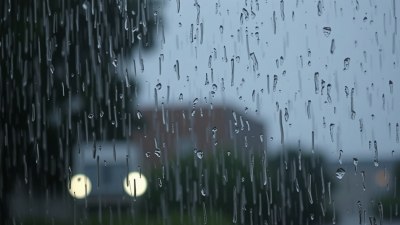Why Air Smells Fresher When Temperatures Start to Rise
Discover why fresh air smells better as temperatures climb, engaging the senses with natural and scientific explanations.

The phenomenon of fresher-smelling air as temperatures begin to rise is a captivating subject that intertwines science and our sensory experiences. As spring approaches and temperatures increase, it's common for people to notice a distinct change in the quality of the air around them. This article will delve into the reasons behind this refreshing aroma, exploring various factors including humidity, natural scents, and even biological influences.
Understanding Odor Molecules
To grasp why air smells fresher in warm temperatures, one must first understand how odor molecules behave. Aromatic compounds, which are responsible for the scents we encounter, become more volatile—that is, they evaporate more readily—when exposed to higher temperatures. This means that as the temperature rises, various compounds from trees, plants, and flowers are released into the atmosphere with greater vigor. These compounds contribute to the delightful scents that many associate with warming weather.
The Role of Humidity
Humidity plays a significant role in our perception of smell. When the temperature increases, the air holds more moisture. This higher humidity can amplify our olfactory perceptions, making scents richer and more pronounced. Furthermore, the interaction of odor molecules with water molecules can lead to a more intense and vibrant scent experience. As moisture levels rise, many of the lovely scents associated with blooming flowers and fresh grass become more noticeable, leading to the perception of fresher air.
Petrichor: The Aroma of Rain
An iconic smell associated with rising temperatures is that of petrichor—the earthy scent produced when rain falls on dry soil. This smell results from oils secreted by plants, particularly during dry periods, which accumulate on the ground and then are released into the air when it rains. As temperatures rise, the potential for rain increases, leading to fresh, clean smells that many people find invigorating. The combination of humidity, heat, and rainfall creates a perfect storm for olfactory delight.
Natural Flora and Fauna Contributions
Flora and fauna significantly contribute to the fresh smells of the air. With rising temperatures, many plants, flowers, and trees begin to bloom, releasing their unique scents into the atmosphere. This blooming season brings a variety of floral and herbal fragrances, from the sweet smell of blossoms to the green scent of fresh leaves. Additionally, the increase in animal activity, particularly after a cold season, introduces other odors—such as that of grass being freshly mowed or the moist aroma of soil disturbed by burrowing creatures.
Air Quality Improvement
Interestingly, rising temperatures can lead to improvements in air quality. Warmer weather often means more favorable conditions for air mixing, which can disperse pollutants and allergens. As a result, the air may not only smell fresher but may actually be cleaner, enhancing our overall experience of freshness. Better air quality can reduce odors like vehicle emissions or smoke, allowing the natural scents of the environment to dominate.
The Psychological Aspect of Smell
Our perception of smell is significantly influenced by psychological factors. The arrival of warmer weather often coincides with feelings of happiness, relaxation, and a renewed zest for life. Thus, the fresh warm air is not only perceived by our noses but also felt by our hearts and minds. This connection can lead individuals to associate pleasant scents with optimism and better moods, heightening the experience of what fresh air really is.
Seasonal Changes and Their Impact
Seasons play a critical role in the variety of smells we experience. As winter fades and spring approaches, the types of plants that release scents change dramatically. Coniferous trees give way to flowering plants, grasses, and leaves, creating a diverse array of smells that mark the transition to warmer weather. Each season brings its unique smells, and the shift from cold to warm allows people to experience a sensory revolution every year.
The Science Behind Fresh Scents
From a scientific standpoint, the increase in temperatures affects not just the presence but the activation of various olfactory receptors. Studies show that our olfactory receptors can become more sensitive to certain smells in warmer temperatures. This enhanced sensitivity likely arises from physiological changes in our body as the warmth stimulates blood flow, metabolism, and sensory function. All of these factors contribute to why fresh, warm air can be experienced so distinctly and delightfully.
In summary, the invigorating scent of fresh air during rising temperatures is the result of a complex interplay between environmental factors, including increased humidity, blooming vegetation, and improved air quality. Additionally, our psychological associations with warmth and nature enhance our sensory experience. So the next time you step outside and inhale the fresh air of a warm day, remember that you're not merely smelling the aromatic compounds—the symphony of nature is playing a beautiful melody just for you.











